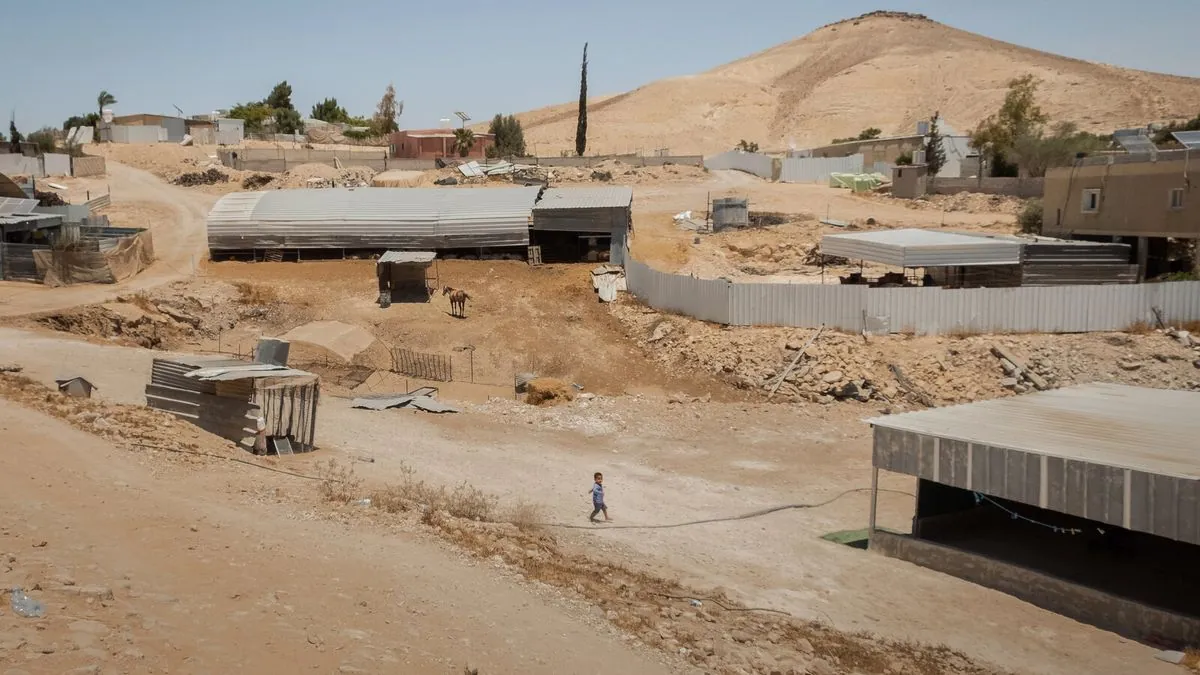In a bittersweet turn of events, Qaid Farhad Alkadi, a 52-year-old Bedouin Israeli, has returned to his village of Karkur after 326 days in captivity in Gaza. While his homecoming was celebrated, it was overshadowed by the looming threat of demolition facing much of the village.
Alkadi is one of approximately 300,000 Bedouin Arabs in Israel, a minority group with a complex relationship with the government. Traditionally nomadic, Bedouins have inhabited desert regions across North Africa, the Arabian Peninsula, and the Levant for centuries. In Israel, they are recognized as a distinct ethnic group within the Arab minority, with a significant population residing in the Negev desert.
The village of Karkur, like many Bedouin settlements, is considered "unrecognized" by the Israeli government. These villages lack basic infrastructure such as electricity, water, and sewage systems. Since November 2023, about 70% of Karkur's residents have been notified of plans to raze their homes, citing construction without permits in a "protected forest" area.
Muhammad Abu Tailakh, head of Karkur's local council, expressed mixed emotions about Alkadi's return: "It's so exciting, we didn't know if he'll come back alive or not. But the good news is also a bit complicated, because of everything that's going on."
The plight of Karkur reflects broader issues facing the Bedouin community in Israel. For decades, the government has attempted to relocate Bedouins from scattered, off-grid villages to designated townships. However, many Bedouin leaders have resisted these proposals, arguing they would disrupt their traditional lifestyle.
"It does not matter if they are Arab or Jewish, all have a family waiting for them. They also want to feel the joy. I hope, I pray an end to this."
The first half of 2024 saw a 51% increase in Bedouin home demolitions compared to the same period in 2022, with 1,325 homes destroyed. This surge coincides with the current right-wing coalition government's policies.
Despite these challenges, it's worth noting that Bedouins have made significant contributions to Israeli society. Some serve in the Israel Defense Forces, particularly in tracking units. During the October 7, 2023 attacks, many Bedouins rushed to assist attendees of an Israeli music festival, saving hundreds of lives.
The Bedouin population in Israel has one of the highest growth rates globally, which presents both opportunities and challenges. Education and healthcare access remain significant issues for many Bedouin communities. Some have embraced eco-tourism as a means of economic development, adapting their traditional lifestyles to modern realities.
As Alkadi reunites with his family, the future of Karkur and many other Bedouin villages remains uncertain. The ongoing legal battles and policy debates highlight the need for a balanced approach that respects both the rule of law and the cultural heritage of Israel's Bedouin citizens.
